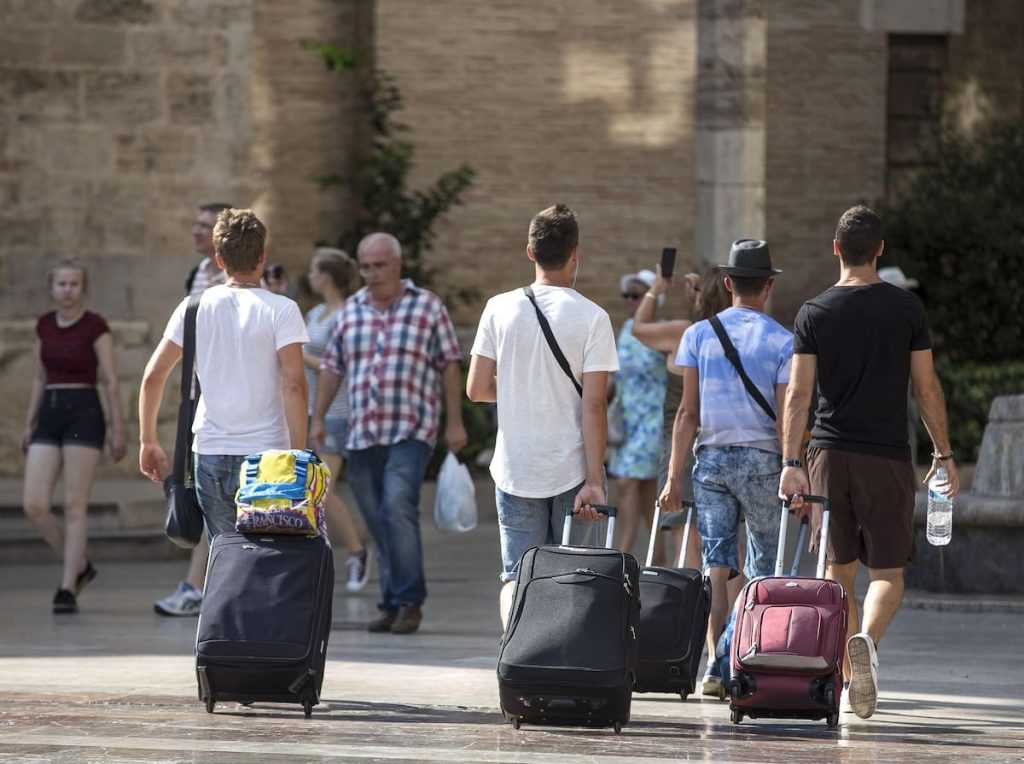The Federation of Neighborhood Associations of Valencia (FAAVV) has welcomed the approval of a one-year moratorium on the granting of new tourist apartment licenses because it “signifies that the municipal government finally acknowledges that there is a problem with the uncontrolled growth of this type of accommodation.” However, the organization insists that the measure “only addresses a minimal percentage of the problem” of the touristification of the city. The residents are calling for participation in the debate, and for the municipal government’s tourist ordinance to limit the number of tourist beds allowed in a neighborhood based on the number of residents and homes.
The diagnosis of the reports accompanying the moratorium agreement on tourist apartments, unanimously approved on Tuesday in Valencia, is worrying. They have detected that tourist arrivals are constantly increasing, and the recent intense conversion of homes to meet tourist demand is causing “problems with city coexistence,” hindering access to housing, especially for young people. A report from the municipal tourism foundation Visit Valencia, issued this week, highlights “a worrying percentage increase” of 33% in tourist-use housing across the city from April 2023 to the same month this year. The number of tourist homes advertised on different platforms has grown from just under 6,000 to 8,000 in a short period, with increases of up to 104% in the vicinity of the Congress Palace.
The Urban Licensing and Activities Service of the City Council has noted an alarming increase in license applications for new tourist uses of housing, especially on the ground floors, in the past year, especially in 2024. In May alone, 411 of the 494 licenses were requested in the first five months of the year. This figure is in addition to the 239 responsible declarations submitted, of which 95 were this month, to open new apartments. The studies conclude that there has been a constant and exponential growth in the opening and commercialization of new tourist homes in Valencia in recent times, which poses a real risk of exceeding the city’s tourism capacity and negatively impacts city coexistence.
The document also warns of the impact of new hotel uses in buildings that were previously residential and the construction of new hotels on residential land, reducing conventional rental or market purchases. The president of the Federation, María José Broseta, criticized the organization’s lack of involvement in municipal policy changes, learning about them through the media rather than the promised dialogue tables with the mayor of Valencia. Broseta expressed concern about the virtuality of the moratorium if a large majority of apartments are already operating without permits, and new works are being carried out outside urban planning regulations.
Broseta questions the effectiveness of the sanctioning process in containing the influx of tourist apartments, the disappearance of the residential rental market, evictions, and rising housing costs. She wonders how many of the 156 recent complaints have led to the effective cessation of hotel activities, or how many complaints have been reported to the Directorate General of Tourism for real punitive action. The ongoing growth and worsening of the situation has raised concerns, with over a thousand new unlicensed apartments added in just one year. The Federation stresses the need for effective measures to regulate the touristification of Valencia and mitigate its negative impact on residents and housing in the city.














